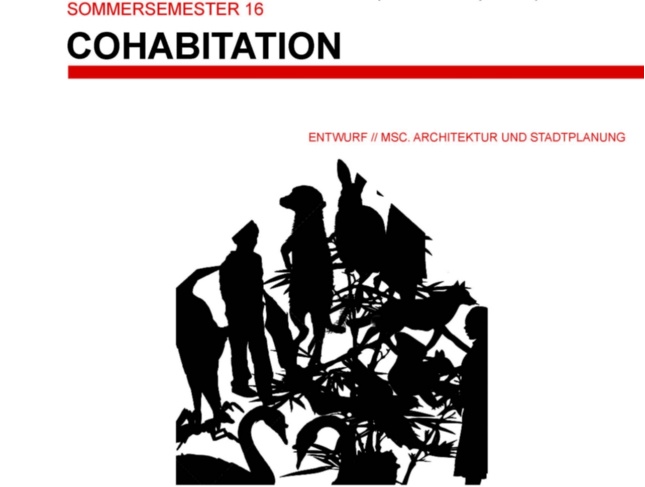INSTITUT FÜR LANDSCHAFTSPLANUNG UND ÖKOLOGIE & IMGA
TIME & ROOM
montags, 14:00 bis 18:00 Uhr (geblockt) + Exkursion/Kompaktworkshop Hamburg, K1, Raum 6.04
START:
11.04.2016, 14:00 Uhr
LECTURERS:
Dr. Ing. Ferdinand Ludwig, Prof. Antje Stokman, N.N

TOPIC
Buildings normally are constructed to serve mankind. However our built environment is not only our living space but rather a more and more important habitat for a multitude of animals and plants. How manifold this habitat can be is demonstrated by the fact that the biodiversity in many cities is sometimes higher than this in the surrounding area.
This is surprising especially because buildings normally are designed and built that they withstand environmental influences as long as possible and at most should offer very few living conditions for flora and fauna: We are afraid that plants and animals disturb the technical functionality of a building or that they even unintentionally enter our own living space. That is way natural colonization of architecture normally happens accidentally, often in the course of decay processes. If the hermetic building envelope start to break open niches and cavities appear that are suitable for nesting or as root spaces.
In the seminar and design project „Co-Habitation“ we turn the tables. We will analyse the living conditions of different plant and animal species systematically and based on this we will develop architectural elements that can serve as a habitat for humans as well as flora and/or fauna. We will approach a kind of architecture that allows a maximum interaction between the building and the environment, offers heterogeneous spaces and environmental conditions for the inhabitants and supports different kinds of ecological processes. Not least we see this as a huge design potential to come to new forms, material systems and processes. The design project is composed of a seminar part where we will work out a systematic catalogue of ideas that will be developed further and applied to the urban fabric of the Hamburg´s city centre with its many canals around the Alster river. Therefore we are cooperating with different nature conservation associations and the environmental authority within the framework of the „Lebendige Alster“ project (www.lebendigealster.de)
ORGANISATION
Expected cost for excursion/ workshop in Hamburg: ca. € 150.- travel/ € 80.- accomodation

